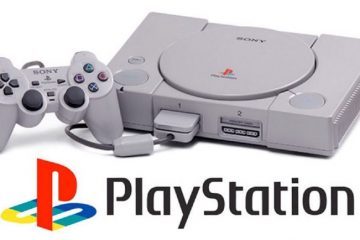How many calories are in 1 tablespoon of raw pumpkin seeds?
How many calories are in 1 tablespoon of raw pumpkin seeds?
Pumpkin seeds: Pumpkin seeds include good amounts of iron, magnesium, testosterone-boosting zinc and vitamin K. One tablespoon of pumpkin seeds is: 47 calories, two grams protein, four grams fat and 1.5 grams carbs. Flax seeds: Flax is one of the best dietary sources of soluble fiber.
How many calories in 2 tbsp shelled pumpkin seeds?
127 calories. 15 g of carbohydrate (including 0 g of sugar and 17.9 g of fiber) 5 mg of protein. 21.43 g of fat, of which 3.57 is saturated.
Why are pumpkin seeds so high in calories?
Like other nuts and seeds, pumpkin seeds are energy-dense, meaning that they contain a substantial number of calories and fat in a small serving size. For example, 1/2 cup (72 grams) of pumpkin seeds with their shells removed contains approximately 415 calories and 35 grams of fat ( 7 ).
How many calories are in a sugar pumpkin?
Summary Pumpkin is packed with nutrients and yet has under 50 calories per cup (245 grams). This makes it a nutrient-dense food.
How many calories are in a small handful of pumpkin seeds?
Compared to other seeds and nuts, pumpkin seeds are relatively low in calories and fat. One serving of these seeds contains just 126 calories and 5.5 grams of fat.
How much zinc is in a tablespoon of pumpkin seeds?
It provides benefits to the heart, bones, and many other body functions, as it is rich in zinc and magnesium. One tablespoon of pumpkin seeds contains almost 1 mg of zinc and 40 mg of magnesium, which fulfills around 20% of a daily recommended intake.
Why are pumpkin seeds bad for you?
Risks. Pumpkin seeds are high in fiber, so eating large amounts may cause gas or bloating. Eating large amounts of pumpkin seeds at once may cause constipation.
Do pumpkin seeds make you fat?
Much like flaxseeds, pumpkin seeds are a rich source of Vitamin A, calcium and protein, which makes it a healthy fat free snack. Pumpkin seeds are a powerhouse of nutrients and can work wonders for skin, hair and weight loss.
Is pumpkin full of sugar?
Pumpkin-Flavored Junk Food And while pumpkin baked goods like pie and quick bread may offer some extra vitamins, minerals and fiber, they also give you lots of sugar and refined carbs. Bottom Line: Pumpkin is generally a healthy food with no negative consequences if eaten in moderation.
Are pumpkins healthy to eat?
Pumpkins are high in fiber and low in calories. That means they make you feel full without adding to your overall food intake for the day. If you’re looking for a healthy way to fill up, nutrient-rich pumpkin is a good go-to choice.
How many pumpkin seeds should I eat a day?
The American Heart Association recommends a quarter cup of daily intake of pumpkin seeds as part of an overall healthy diet, which is approximately 30 g. This amount will provide you with a good amount of protein, healthy fats, fiber, zinc, selenium, magnesium, and other effective nutrients.
What are the nutritional benefits of pumpkin seeds?
When bought for human consumption, pumpkin seeds are without the shell and are dark green in colour and oval in shape. 28 grams of the seeds provides around 151 nutritiously packed calories from protein and fat. This size portion provides 7 grams of protein and 13 grams of fat, of which 6 grams are omega-6s.
Are there any side effects to eating pumpkin seeds?
Another risk of overconsumption of pumpkin seeds is weight gain. They are tiny seeds but are quite high in calories and fats, therefore eating too many may interact with your weight and cause you to gain weight. These are the only side effects and risks currently reported. Whilst they are mild, they can still cause problems.
What kind of seeds are in a pumpkin?
Pumpkin seeds are the edible seeds which come from a pumpkin, or similar squash variations. Pumpkins belong to the Cucurbitaceae family which is made up of watermelons, cantaloupe and cucumbers too. The seeds are typically flat oval shaped green seeds which can be consumed without the white outer shell.
Why are there so many pumpkin seeds in the world?
The seeds are extracted from pumpkins which are native to America, typically North, and have been a dietary and medicinal seed for hundreds of years. This has led to a popularity and need for pumpkin seeds worldwide for millions to reap their many health benefits. Today, China produces more pumpkin seeds than any other country.


